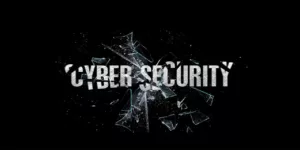There is an increasing trend with the increasing number of military veterans in the United States to provide retraining for them and fill critical openings. These efforts solve several problems simultaneously: They put Veterans back to work making them again useful to society, protect their family units, and offset increases in homelessness while filling jobs critical to increasing national productivity. One such program is the Cisco Veterans Cyber Scholarship program that started accepting applications earlier this year.
This program is a collaborative program that included other firms like Amazon Web Services, (ISC)2, Fortinet, Palo Alto Networks, NetApp, and the Network Development group providing not only assistance in the effort but often have job openings for those that complete the certifications. This program is also done in partnership with Onward to Opportunity another service that helps veterans and their spouses’ transition to post-military life. And the target audience for this isn’t just the veterans themselves but their spouses, some of which may be widows.
Let’s talk about this effort this week.
Veteran Problem
Veterans have a unique set of skills and problems that make transitioning to the public sector difficult. They can certainly learn and generally possess great dedication and loyalty, so they make excellent employees once fully trained, but they often need to work through issues like PTSD requiring programs that know how to deal with that kind of issue. This unique problem makes it very hard for them to use traditional education programs and often they are short of funds or even homeless also making it very hard for them to get the funding and help they need to get back on their feet.
But, once trained, they not only both become strong contributors to the society they often work in support of their fellow veterans to help them out as well so you get an increasingly synergistic leveraged benefit of peers helping peers and, once at critical mass, you can see real change in the veterans and their families.
These are men and women who put their lives on the line for others, and they should be at the top of any list for assistance both because they’ve earned it and because their training and dispositions often make it, so they continue to want to help others. This unique cooperative focus makes them huge potential assets if they can again be turned into productive members of society.
Cyber Veterans Cyber Scholarship
This program helps with funding and provides fast track skills to the job process, so graduates and certificate holders have don’t have to wait long for jobs. The program offers free online access to courses that specifically target areas that are in high demand in Security and Cyber Ops. These two areas dovetail nicely with veterans because they have high synergy with military concepts and the two career paths already have large numbers of ex-military and ex-police members in them.
This cybersecurity focus provides an impressive amount of common background in the working groups, which helps with cohesion, morale, and internal support. If a member has a problem, chances are there is someone in their working group that has had similar issues, and the military culture is one of group assistance and help.
There are a total of over 250 technology companies in over 160 countries that consume the graduates and certificate holders and the program targets states where related workforce shortages are highest. Current states targeted are Arizona, Maryland, North Carolina, and Virginia.
Wrapping Up: The Uber Benefit
The battlefields of today are quickly transitioning to the cyber warfare battles of tomorrow, and they aren’t just between countries but involve local municipalities and companies as well. Veterans have the culture, training, and background to fight; they often lack the knowledge of the new class of cyber weapons they need to use. Critical programs like the Cisco Cyber Veterans Cyber scholarship program bridge that critical gap turning our valued warriors of yesterday into the critical champions of tomorrow.
This program is yet another example or companies like Cisco stepping up when governments like ours fall short on their commitment to protecting those that protected them. Given I believe that companies like Cisco could likely do a better job than the government can anyway at this, I think this is a good thing.








